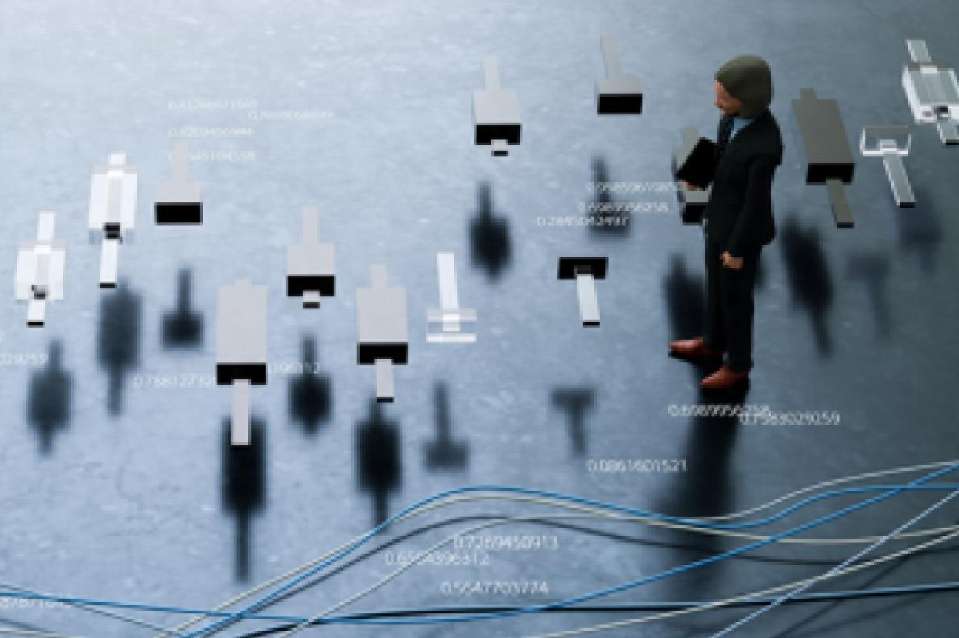Del's Fujian IPO: Operational and Equity Challenges
Advertisements
Recently, Fujian Del Technology Co., Ltd., commonly referred to as Fujian Del, has made significant strides toward its initial public offering (IPO). The company has updated its financial information, and the status of its application has advanced from "suspended (financial report update)" to "under inquiry." This move comes with the backing of Shenwan Hongyuan Securities Co., Ltd., which serves as the underwriter, and Fujian Del is set to list on the Shanghai Stock Exchange's main board.
Fujian Del, established in June 2014, is a dynamic technology enterprise specializing in system integration and technical services. However, in the past three years, the company has encountered various challenges, including a noticeable decline in profitability and lackluster revenue growth. Additionally, concerns have been raised regarding "low-priced" equity incentives that might not adequately reward long-term performance, as well as instances of equity holding arrangements.
From 2021 to 2023, Fujian Del reported revenue figures of 1.255 billion yuan, 1.698 billion yuan, and 1.418 billion yuan respectively. However, 2023 marked a significant downturn for the company, with a year-on-year revenue drop of 16.52%. The net profit also plummeted from 303 million yuan to just 111 million yuan, representing a staggering decline of 49.38%. Such marked losses prompt inquiries into the management and operational strategies employed by the company.
In response to these disheartening figures, Fujian Del cited the drastic decrease in the market price of lithium hexafluorophosphate, a key product, as a critical factor. The competitive landscape for energy storage materials has tightened, particularly affecting lithium battery materials, with prices experiencing substantial declines. While other segments of Fujian Del's operations appeared to thrive during this period, the cyclical fluctuations in domestic renewable energy markets negatively impacted overall performance.

To improve its revenue, Fujian Del tried to augment its sales expenses as a way to stimulate market demand. However, this strategy has not yielded the desired results. Sales expenses during this period fluctuated, accounting for 2.56%, 2.34%, 3.24%, and 3.05% of revenue respectively from 2021 to the first half of 2024, indicating ineffective returns on those expenditures.
Despite these struggles, the company remains cautiously optimistic. It claimed that, as of early 2024, overall business conditions have improved significantly, suggesting a potential rebound in performance. However, an examination of the financials for the first half of 2024 reveals that revenue and net profit have only recovered to about half of the figures for the entirety of 2023. This raises questions regarding the sustainability of the recovery.
Fujian Del is also grappling with issues concerning the quality of its revenue, as evidenced by consistently high accounts receivable balances. Numbers reveal that from 2021 to the first half of 2024, the accounts receivable balances saw dramatic growth, further complicating the company’s cash flow and overall financial health. The uneven increase in receivables relative to declining revenue highlights potential risks to operational liquidity.
A further point of concern relates to the company's equity incentive plan, which has been marred by low pricing. In its paperwork, Fujian Del disclosed that during the reporting period, it completed both A-round and B-round financing. The valuation skyrocketed from 4.4 billion yuan in August 2021 to 17.5 billion yuan by August 2022—an astounding increase of 131 billion yuan in just one year. The implications of such rapid appreciation have not gone unnoticed, raising questions about equity distribution among original shareholders.
Moreover, the valuation surge benefits core staff members who secured their shares at significantly lower prices via the equity incentive plan. For instance, in August 2022, Fujian Del's equity incentive scheme granted shares to its subsidiary, Longyan Yike Investment Center, at an astonishingly low price of 1.3 yuan per registered capital, while external shareholders had to invest at a rate of 17.09 yuan per registered capital. This discrepancy leads to an eye-watering difference in potential profits once the company goes public.
If the IPO success follows the current valuation estimates, Longyan Yike would see its shares valued between 83.92 million yuan and 133.09 million yuan, showcasing a potential wealth increase of 1160% to 1899%. This creates a challenging landscape, where early investors may reap excessive rewards while concurrently straining the company's bottom line with necessary financial provisions for implementing low-cost stock options.
Additionally, the company's shareholder structure raises eyebrows, with ongoing instances of equity holding arrangements surfacing just before the IPO. Some controlling shareholders have undertaken what appears to be questionable practices involving the transfer and restoration of shareholdings. For instance, one actual controller, Huang Tianliang, reverted shares on the eve of the IPO application, raising suspicions about the timing of these maneuvers.
Furthermore, another shareholder, Hua Xiangbin, similarly removed shareholding arrangements shortly before the IPO, adding to concerns of market manipulation or, at best, opacity in its operations. The market has reacted with skepticism regarding Fujian Del’s equity handling, leading the company to clarify its position, asserting that the historical nature of these arrangements was properly resolved, ensuring no significant impact on business operations.
In summary, Fujian Del stands at a crossroads. While it appears to be making strides toward listing on the Shanghai Stock Exchange, its operational and financial turbulence cannot be overlooked. Stakeholders, potential investors, and analysts must navigate a complex landscape characterized by recent difficulties and inherent risks, all while evaluating the long-term prospects of Fujian Del within the rapidly evolving technology sector of China.
Leave A Comment